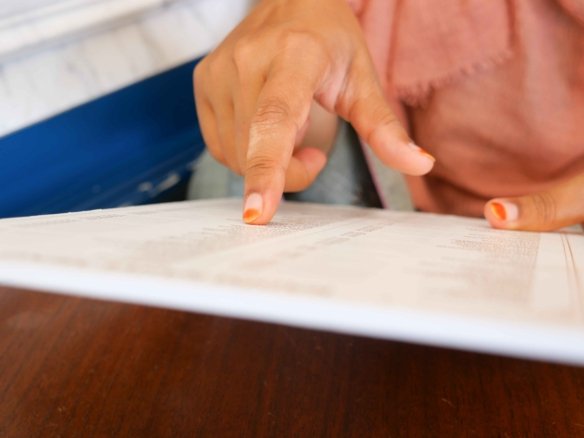Tax deed auctions offer investors the chance to purchase properties at below-market prices. However, unlike traditional real estate closings, you often need to come prepared with funds at the auction. Financing can make or break your success, so it’s essential to plan ahead.
Typically, auctions require full payment—either the full purchase price or a refundable deposit—immediately or within a short window afterward. This requirement makes financing a critical part of your strategy. Without access to quick capital, you risk losing out on deals or, worse, forfeiting deposits.
Preparing Ahead: Evaluating Your Financial Options
Before attending the auction, it’s important to understand your financing options. These range from personal cash reserves and lines of credit to hard money loans and partnerships. Evaluate each method for speed, cost, and complexity. Cash is fastest and cheapest, but not everyone has large sums on hand. Without ready cash, you need alternatives like credit lines or private lenders.
Using Personal Savings and Cash
The simplest financing method is obvious: use your own money. If your savings are sufficient, paying upfront at the auction is straightforward. You avoid interest charges and lender fees, and you’re in control. But this strategy requires liquidity. It’s wise to set aside a specific auction fund so your everyday finances aren’t tied up in property purchases.
Leveraging Home Equity Lines of Credit
A home equity line of credit (HELOC) can be an excellent tool for investors. It offers access to cash at variable interest rates, and you can draw as needed. Approved HELOCs typically offer quick funding once open. The catch? Approval takes time, usually weeks or months, so apply well in advance. Also, beware of variable rates: if market rates climb, your repayment could become more expensive.
Considering Traditional Mortgage Pre-Approval
Although tax deed purchases require fast payment, you can anchor your plan with a traditional mortgage pre-approval. This shows sellers and lenders that financing is secure. It’s not unusual to use mortgage funds for rehab and long-term financing after the auction purchase. Often, investors use short-term capital at auction, then refinance once the property is under contract with a residential or investment mortgage.
Relying on Hard Money or Bridge Loans
Hard money lenders are a popular auction financing source. These private lenders offer fast funding based on the property’s after-repair value. Approvals can happen in days, and funding quickly follows. Of course, interest rates are significantly higher than bank loans, and terms can be short—six months to a few years. Plan your exit strategy carefully so refinancing or selling before the loan comes due.
Bridge loans function similarly but can come from traditional or private lenders. They bridge the gap between purchase and permanent financing. Both hard money and bridge loans are ideal for investors who expect to refinance into lower-rate mortgages later.
Forming a Partnership or Joint Venture
If you lack the capital, partnering with someone who can provide funds might work well. You supply the knowledge and oversight, and your partner provides the financing. Agreements should outline profit sharing, responsibilities, timing, and exit plans. Trust and clear communication are essential; make sure legal documents are prepared to protect all parties.
Exploring Auction-Specific Financing Programs
In some regions, local governments or auction sponsors offer financing programs designed for tax deed purchases. These may include low-interest loans or deferred-payment plans tailored to this market. While rare, these opportunities can be very helpful. Research your county’s auction guidelines, and contact the taxing authority to inquire about possible financing assistance.
Preparing Documentation and Approval in Advance
Regardless of financing type, gather your paperwork early: credit reports, bank statements, proof of funds, property evaluations, and loan pre-approvals. Formatting finances ahead of time ensures smooth execution at auction day. If using a lender or partner, get documentation ready to confirm available funds within hours of winning the bid.
Managing Deposit Requirements
Most auctions require a deposit—often 5–10 percent of your bid—either as certified funds or cashier’s check. Know the deposit amount and forms the auction accepts. Your financing plan must include deposit availability. Missing deposit deadlines can result in immediate disqualification or loss of bidding privileges.
Winning the Bid and Acting Quickly
Once you win the auction, a financing plan must spring into action. If using a lender, trigger the draw immediately. If refinancing or utilizing a HELOC, begin paperwork without delay. Auctions typically require full payment within days, so coordination is critical. Work closely with lenders and title companies to ensure funds are in place by the deadline.
Closing the Purchase and Managing Title Issues
At closing, you’ll receive a deed—though it may come with title concerns such as liens or other claims. Work with a title company or real estate attorney to clear the title. Financing lenders (especially hard money lenders) often require evidence of a clean title before releasing funds. In some cases, title insurance may be necessary before or after closing.
Refinancing into Traditional Loans for Long-Term Ownership
After acquiring the property, especially if you used short-term or high-rate financing, consider refinancing. Switching to a conventional or FHA loan can reduce monthly payments, lower interest costs, and free equity for your next deal. To qualify, wait until the property is stabilized, inspected, and valued. Your earlier pre-approval will support this process.

Planning Exit Strategies
Before bidding, define your exit strategy. Will you hold and rent the property? Rehab and flip it? Sell quickly? Each path affects your financing needs. For example, rehab projects may require access to renovation loans or construction draws. Rental holdings rely on long-term mortgages. Matching financing to your exit strategy keeps your project on track and reduces surprises.
Preparing Contingency Plans
Always build contingency into your financial strategy. Sometimes costs exceed expectations, property condition worsens, or market shifts occur. Keep backup funds available for repairs, escrow, lien resolution, or holding costs. If your financing plan fails—like a lender backing out—you should have Plan B ready, such as alternative lenders or emergency savings.
Learning From Experience
After the auction, review your financial performance. Did the financing come through on time? Did interest and fees align with your projections? Take note of what worked and where you can improve. This analysis is invaluable, helping you refine your structure for future deals—whether sourcing faster funds, negotiating better lender terms, or tightening your contingency planning.
Conclusion
Financing a tax deed auction purchase demands careful planning, speed, and flexibility. By evaluating multiple sources of capital, preparing documents early, establishing deposit readiness, and matching loans to exit strategies, you set yourself up for success. Whether you use cash, HELOCs, hard money, partnerships, or specialty programs, a solid financing plan means the difference between winning deals and losing opportunities.






Join The Discussion